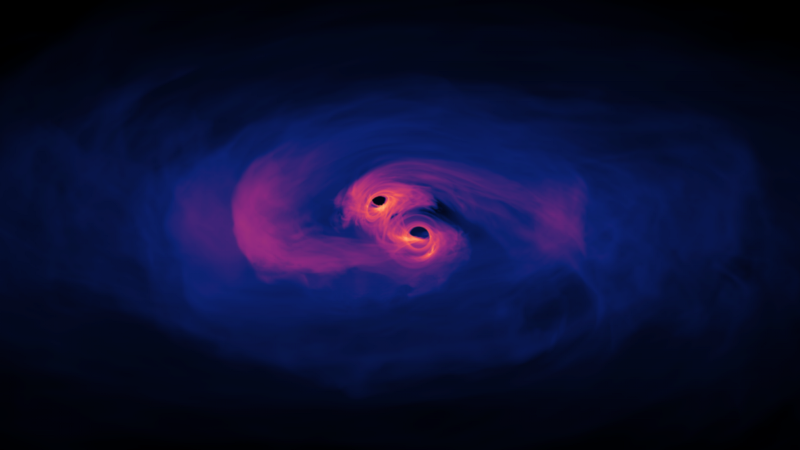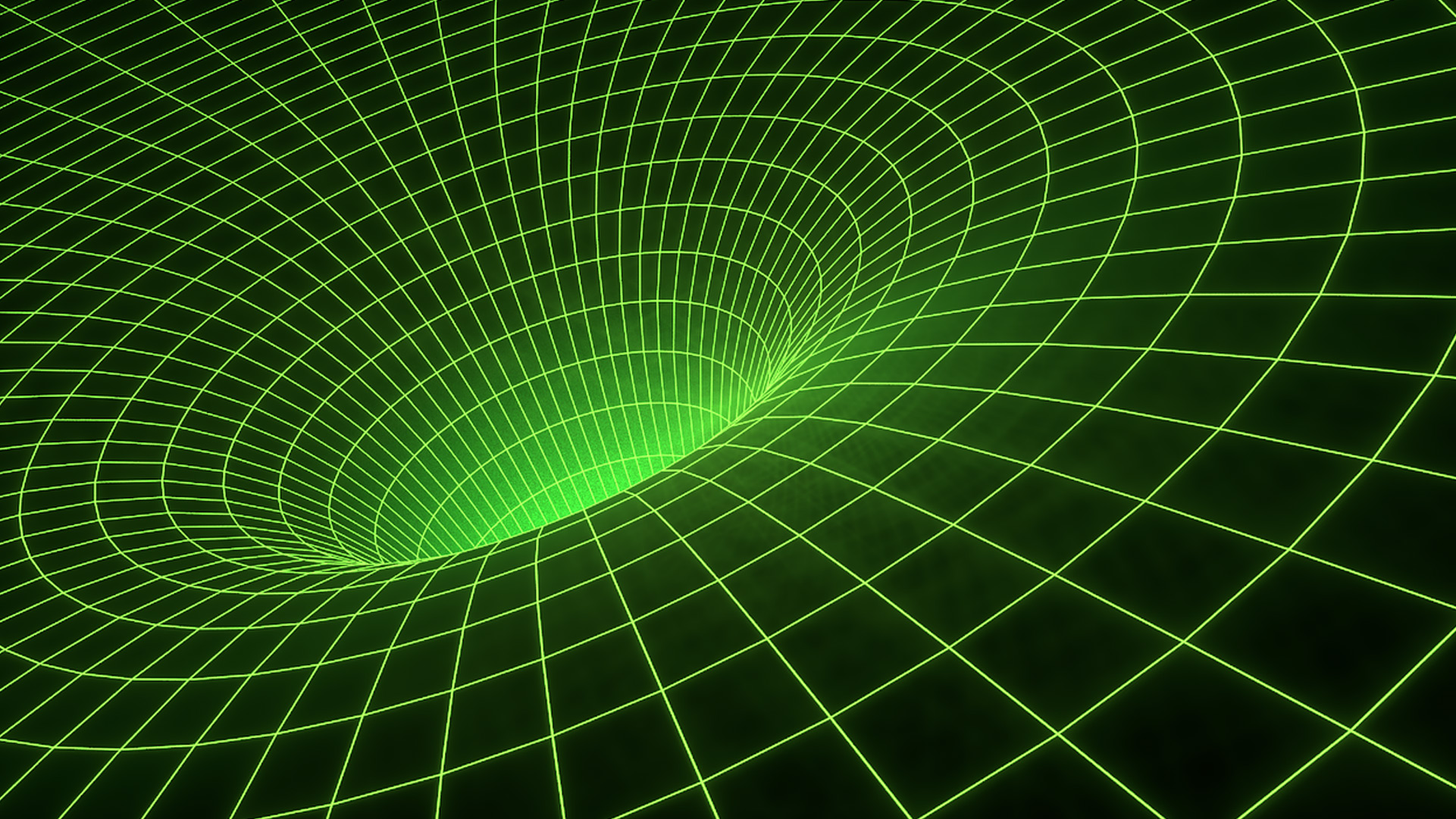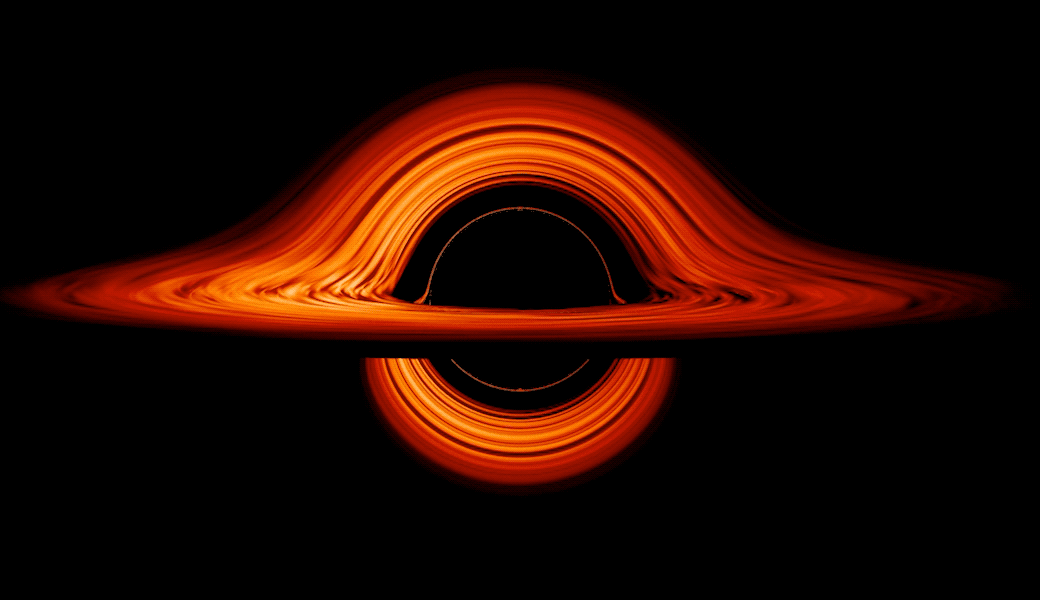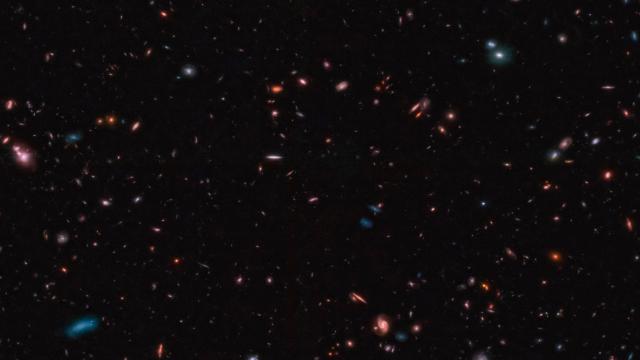Why black holes unlock the quantum majesty of the Universe
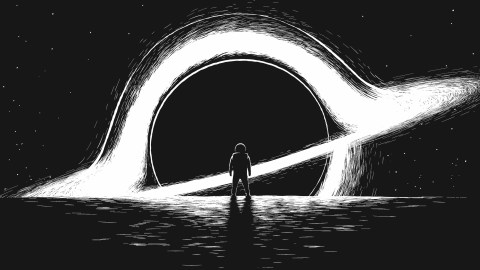
Credit: Galacticus / Adobe Stock
- We can describe a vast array of natural phenomena, from photons to galaxies, using the language of mathematics.
- The study of black holes has advanced quantum theory and the language of information and computing.
- Information processing is a feature of our universe — and black holes are crucial to our cosmic understanding.
Imagine you find a watch lying on the ground. On close inspection you are compelled to marvel at its delicate sophistication and exquisite precision. The mechanism was surely designed; there must have been a creator. Transpose ‘watch’ for ‘Nature’ and this is the argument for God presented by clergyman William Paley in 1802. We now understand that the argument is seriously undermined by the overwhelming evidence in support of Darwin’s theory of evolution by natural selection. The watchmaker is Nature, and it is blind. ‘There is grandeur in this view of life,’ wrote Darwin, ‘with its several powers, having been originally breathed into a few forms or into one; and that, while this planet has gone cycling on according to the fixed law of gravity, from so simple a beginning endless forms most beautiful and most wonderful have been, and are being, evolved.’
But what of the fixed law of gravity, a prerequisite for the existence of the planets on which the endless forms evolved? Or the laws of electricity and magnetism which glue the animals together? Or the menagerie of subatomic particles out of which we are made? Who or what laid down the laws; the framework within which everything cycles on?
The story of modern physics has been one of reductionism. We do not need a vast encyclopedia to understand the inner workings of Nature. Rather, we can describe a near-limitless range of natural phenomena, from the interior of a proton to the creation of galaxies, with apparently unreasonable efficiency using the language of mathematics. In the words of theoretical physicist Eugene Wigner, ‘The miracle of the appropriateness of the language of mathematics for the formulation of the laws of physics is a wonderful gift which we neither understand nor deserve. We should be grateful for it.’
The mathematics of the twentieth century described a Universe populated by a limited number of different types of fundamental particles interacting with each other in an arena known as spacetime according to a collection of rules that can be written down on the back of an envelope. If the Universe was designed, it seemed, the designer was a mathematician.
Today, the study of black holes appears to be edging us in a new direction, towards a language more often used by quantum computer scientists. The language of information. Space and time may be emergent entities that do not exist in the deepest description of Nature. Instead, they are synthesized out of entangled quantum bits of information in a way that resembles a cleverly constructed computer code. If the Universe is designed, it seems, the designer is a programmer.
But we must take care. Like Paley before us, we are in danger of over-reaching. The role of information science in describing black holes may be pointing us towards a novel description of Nature, but this does not imply we were programmed. Rather we might conclude that the language of computing is well suited to describing the algorithmic unfolding of the cosmos. Put in these terms, there is no greater or lesser mystery here than Wigner’s miracle of the appropriateness of the language of mathematics for the formulation of the laws of physics. Information processing — the churning of bits from input to output — is not a construction of computer science, it is a feature of our Universe. Rather than spacetime-as-a-quantum-computer-code pointing to a programmer, we might instead take the view that earth-bound computer scientists have discovered tricks that Nature has already exploited. Viewed in this way, black holes are cosmic Rosetta Stones, allowing us to translate our observations into a new language that affords us a glimpse of the profoundest reason and most radiant beauty.

